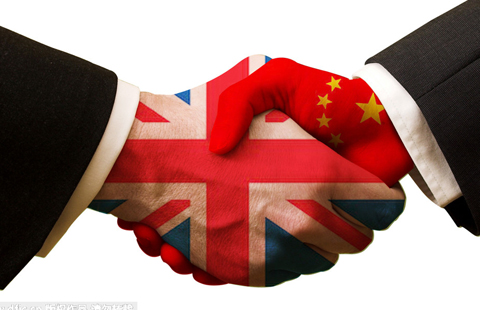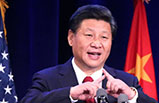Synthetic rhino horn takes stab at market
By LIA ZHU in San Francisco (China Daily USA) Updated: 2015-10-29 15:16"The essence of rhino horn doesn't come from China or Africa, but … the Pacific Northwest of America for softer and cooler skin," says a commercial in Vietnamese on YouTube, touting a skin cream made of bioengineered rhino horn.
A Seattle-based biotech startup called Pembient is introducing to the market a product that is genetically similar to rhinoceros horn but at a price lower than what poachers get.
"Our goal is to make wild-sourced products undesirable, and put illegal wildlife trading syndicates out of business," said Matthew Markus, the CEO of Pembient.
"We've reconstituted a horn from sheep's wool. This horn matches rhinoceros horn when spectrographically tested," said Markus. "It also yields the genetic fingerprint of a rhinoceros when genetically tested because we've added rhinoceros DNA to it."
He said they were currently inserting rhinoceros genes into yeast and these genes would instruct the yeast to produce proteins called "keratins". The keratins produced by the yeast will then replace the sheep's wool in the formulation process and the end result will be a horn that is even more similar to rhinoceros horn, he explained.
"Our hope is to provide samples to our potential customers within the next 12 months," he said.
Before working on solid horns, the startup developed a lab-made rhinoceros horn powder and a brewery in Beijing was interested in incorporating this powder into a beer.
"We thought this was an acceptable use of the powder since rhinoceros horn is sometimes ground into distilled beverages. In fact, some of the users of rhinoceros horn we interviewed said they would prefer the convenience of a pre-made beverage to making one themselves," Markus said.
They had planned to create a limited edition beer to be served in the brewery's tap room, and collect market research data by surveying the beer drinkers.
"Unfortunately, we received a lot of publicity ahead of the launch of this beer, and the brewery decided our tests would distract from their existing business," he said. "We would still like to test market a beer product, but we'll probably wait until we find the right partner."
In Vietnam, rhino horn is believed to be a cure for hangover and even cancer; in China, traditional medicine uses rhino horn to reduce fever and treat other ailments.
The Chinese government has banned the trade and transportation of rhino horns as well as products made from rhino horns since 1993. It also abolished the medicinal application standard for rhino horns in the same year.
But International Rhino Foundation (IRF), a US-based advocacy for preserving rhinos, said rhino horns continue to be traded illegally on the black market in Asian countries.
IRF said on its website that the demand from the burgeoning middle classes in China and Vietnam, which are increasingly able to afford rhino horn, are driving record poaching rates.
In South Africa, poachers kill three or more rhinos per day to feed the demand for horn on the black market. Last year, more than 1,200 rhinos were killed in South Africa, a 9,000 percent increase since 2007, according to IRF.
Markus said their synthetic horn has the potential to help conservation in that "quality uncertainty" will be created, meaning "buyers won't really know if they're getting a wild or a cultured horn".
"Our hypothesis is that this quality uncertainty will cause the price of horn to fall to a level that disincentivizes poaching," he explained, adding that a portion of the revenues will be redirected to anti-poverty and anti-poaching programs in South Africa and elsewhere.
But groups like IRF believe the synthetic rhino horn trade is potentially counterproductive in curbing the current poaching crisis.
"Synthetic horn could lead to more poaching because it increases demand for the real thing," said Susie Ellis, executive director of IRF, in a statement. "We want to decrease demand, not invest in potential extinction by introducing new products."
liazhu@chinadailyusa.com






